Masters in Economics in Australia
Pursuing a Masters in Economics in Australia can be a transformative experience, offering students a deep understanding of economic theories, policies, and practices. This article provides valuable insights into the Masters in Economics program, highlighting its significance, curriculum, top universities, admission process, job opportunities, and more. Whether you aspire to be an economic analyst, policy advisor, or researcher, a Masters in Economics in Australia can equip you with the knowledge and skills needed to excel in the dynamic world of economics.
Highlights of Masters in Economics in Australia
Embarking on a Masters in Economics in Australia journey unveils a path to comprehensive economic expertise and a world of possibilities. This program, designed to mold adept economists, offers a blend of theoretical foundations and practical applications that prepare graduates for impactful careers. A summary of the program is below:
Duration |
Average Fees |
Course Type |
General Eligibility |
Exams Required |
1.5 - 2 years |
AUD 20,000 - $40,000 per year |
Full-time, Part-time |
Relevant bachelor's degree, English proficiency |
IELTS, TOEFL (if applicable) |
Whether you envision yourself influencing economic policies, conducting in-depth market analysis, or contributing to sustainable development, a Masters in Economics in Australia sets you on an enlightening journey of academic excellence and professional growth.
Why Study Economics in Australia?
Studying Economics in Australia offers a multitude of advantages. With a robust education system and a diverse culture, Australia provides an enriching environment for international students. The country's academic excellence is known for its world-renowned universities, cutting-edge research opportunities, and a strong emphasis on practical learning. Australia's strong ties to the Asia-Pacific region open doors to unique economic perspectives and potential career opportunities.
Types of Masters in Economics Specializations in Australia
Economics is a diverse field, and Australia offers a range of specialized Masters programs within the broader discipline. These may include a Masters in Applied Economics, International Trade and Development, Environmental Economics, Public Policy and Economics, Financial Economics, and more. Each specialization caters to specific interests and career aspirations, allowing students to tailor their education to their desired path.
The Masters in Economics curriculum delves into microeconomics, macroeconomics, econometrics, quantitative analysis, and policy formulation. This blend of core and specialized subjects equips students with a profound understanding of economic theories and their real-world applications.
The flexible course structure accommodates both full-time and part-time students, making it feasible for those with diverse commitments. With a strong emphasis on research, problem-solving, and critical thinking, this program grooms individuals to tackle complex economic challenges across industries and sectors.
Whether you envision yourself influencing economic policies, conducting in-depth market analysis, or contributing to sustainable development, a Masters in Economics in Australia sets you on an enlightening journey of academic excellence and professional growth.
Best Universities for Masters in Economics in Australia
Australia boasts several prestigious universities renowned for their Economics programs. Here are a few of the top institutions offering this course:
University |
World Ranking |
Annual Tuition Fees |
Programs Offered |
Admission Deadlines |
Monash University |
44th in Times Higher Education 2023 |
34,600 to 54,000 AUD (19.08 to 29.77 lakhs INR) |
Master of Applied Econometrics, Master of Applied Economics, Master of Banking and Finance, Master of Business Economics, Master of Economics |
Rolling admissions |
The University of Sydney |
51st in Times Higher Education 2023 |
42,000 to 54,000 AUD (23.15 to 29.77 lakhs INR) |
Master of Economics, Master of Political Economy, Master of International Business and Law |
30th November |
The University of Melbourne |
56th in Times Higher Education 2023 |
41,472 to 47,904 AUD (22.83 to 26.38 lakhs INR) |
Master of Economics, Master of International Business, Master of Commerce |
31st October |
Australian National University |
60th in T Times Higher Education2023 |
37,008 to 47,040 AUD (20.36 to 25.89 lakhs INR) |
Master of Economic Policy, Master of Applied Economics, Master of Economic Studies |
15th November |
The University of Queensland |
62nd in Times Higher Education2023 |
34,112 to 44,640 AUD (18.75 to 24.52 lakhs INR) |
Master of Economics, Master of Development Economics, Master of International Economics and Finance |
30th November |
The University of Western Australia |
131st in Times Higher Education2023 |
34,800 to 43,200 AUD (19.14 to 23.74 lakhs INR) |
Master of Economics, Master of Agricultural and Resource Economics |
31st October |
Course Curriculum
The Masters in Economics in Australia offers a comprehensive curriculum designed to provide students with a deep understanding of economic principles, policies, and practices. This enlightening journey encompasses a diverse range of subjects and topics, equipping graduates with the knowledge and skills required to thrive in the dynamic world of economics.
Admission Requirements & Eligibility Criteria for Masters in Economics in Australia
Eligibility Criteria
To enroll in a Masters in Economics in Australia, candidates generally need:
- A relevant bachelor's degree with a decent academic record
- Proof of English proficiency (e.g., IELTS: 6.5 overall with no band less than 6.0)
- Letters of recommendation
- Statement of purpose
- Resume/CV
Admission Requirements
Gaining admission for Masters in Economics in Australia involves fulfilling several vital requirements that pave the way for your academic journey. Essential documents, language proficiency, and beyond are prerequisites that ensure a smooth transition into this enriching educational experience.
Key Requirements
- Academic Credentials: A relevant bachelor's degree from a recognized institution demonstrates your foundational knowledge in economics or related fields. Transcripts and certificates verifying your academic achievements are essential.
- Language Proficiency: Proficiency in English is vital as the medium of instruction. Most universities accept standardized language test scores such as IELTS, TOEFL, or PTE. Achieving the minimum required score validates your ability to comprehend and communicate effectively.
- Letters of Recommendation: Typically, you'll need two to three letters from academic or professional referees who can vouch for your aptitude, work ethic, and potential as a Masters candidate.
- Statement of Purpose (SOP): Your SOP is an opportunity to showcase your motivation, goals, and how the Masters in Economics aligns with your aspirations. A well-crafted SOP provides insights into your personality and dedication.
- Resume/CV: Your resume should highlight academic achievements, work experience, internships, research projects, and extracurricular activities. This document demonstrates your well-roundedness and suitability for the program.
- Entrance Exams: Depending on the university, you may need to take standardized tests like the GRE or GMAT. These tests evaluate your analytical, quantitative, and critical thinking abilities, which are crucial for success in a rigorous academic environment.
- Visa Requirements: International students must secure a visa to study in Australia. It may involve fulfilling financial criteria and health insurance requirements and providing evidence of genuine intent to pursue education.
- Work Experience: While not always mandatory, relevant work experience can strengthen your application and demonstrate practical exposure to economic concepts. It showcases your ability to apply theoretical knowledge to real-world scenarios.
Admission Process
The admission for Masters in Economics in Australia involves several steps to ensure a seamless transition into your academic journey. Here's a concise guide on how prospective students can embark on this exciting path:
- Research and Shortlist: Begin researching universities offering the Masters in Economics program. Evaluate their curriculum, faculty, and reputation to shortlist institutions aligning with your academic goals.
- Check Eligibility: Review the admission criteria, ensuring you meet academic requirements and language proficiency standards. Prepare documents like transcripts, letters of recommendation, and language test scores.
- Submit Application: Complete the online application by providing accurate personal and academic details. Attach supporting documents, including your SOP, resume, and recommendation letters.
- Entrance Exams: Register and prepare for standardized tests like the GRE or GMAT. Achieving a competitive score enhances your application.
- Interview (if applicable): Some universities may take interviews to assess your suitability for the program. Prepare by researching the program and practicing responses.
- Acceptance and Visa: You will receive an offer letter after admission. Accept the offer and initiate the student visa application process. Fulfill financial, health insurance, and character requirements.
- Arrival Preparation: Plan your arrival, accommodation, and other logistical aspects. Attend orientation programs to acclimate to the university and the new environment.
Cost of Studying Masters in Economics in Australia
Embarking on a Masters in Economics journey entails an educational investment and an exciting opportunity for personal and professional growth. Understanding the comprehensive cost structure is crucial as it encompasses tuition fees, pre-arrival expenses, and the overall financial commitment.
Course Fees and Pre-Arrival Costs
The tuition fees for Masters in Economics in Australia vary depending on the university and course structure. Students can expect charges ranging from AUD 20,000 to $40,000 PA. Research and compare programs to find the one that aligns with your budget and aspirations.
In addition to course fees, there are pre-arrival costs to consider:
- Language Proficiency Tests: International students are required to demonstrate English proficiency through exams like IELTS or TOEFL. The cost for these tests can range from AUD 200 to $330, depending on the test center and location.
- Student Visa: Securing a student visa is a prerequisite for studying in Australia. Visa application fees range from AUD 575 to $620, depending on the type of visa and processing time.
- Health Insurance: Overseas Student Health Cover (OSHC) is mandatory for international students. The cost varies based on the duration of your program and the insurance provider, averaging around AUD 437 per year.
- Accommodation and Living Expenses: While studying in Australia, a budget for accommodation, food, transportation, and other daily expenses will be necessary. These costs can vary greatly depending on your location and lifestyle.
Planning for these expenses is vital. Plan it to ensure a smooth transition and a fulfilling academic experience. Exploring scholarship opportunities, part-time work options, and budgeting strategies can help alleviate financial concerns and allow you to make the most of your Masters in Economics in Australia.
Scholarships & Financial Aid for Masters in Economics in Australia
Exploring scholarship opportunities can ease the financial burden of pursuing a Masters in Economics in Australia. Several scholarships, tailored to support outstanding students, provide financial aid and recognition of academic merit and potential contributions to the field.
Scholarship Name |
Eligibility |
Deadline |
Scholarship Amount |
Excellence Scholarship |
Outstanding academic record, Relevant achievements |
April 30 |
AUD 5,000 – AUD 10,000 |
Future Economist Award |
Demonstrated passion for economics, Leadership qualities |
June 15 |
AUD 7,500 |
These scholarships alleviate tuition costs and showcase your dedication and potential as an economist. Stay vigilant and apply within the stipulated deadlines to maximize your chances of securing these prestigious awards.
Career Opportunities after Masters in Economics in Australia
Upon completing a Masters in Economics in Australia, graduates want to embark on rewarding career paths.
These roles allow graduates to contribute to policy formulation, economic research, financial analysis, and more. With a Masters in Economics, you possess the expertise to make informed decisions that impact economies and industries globally.
- Level of study
- Streams
- Countries
- Cities
- Fees
- Exams Accepted
- Course Duration
- Masters
- Clear All

Graduate Certificate of Economics
Australian National University, Australia
The Graduate Certificate of Economics is designed to provide a foundation in economics for whose prior economics training is minimal or nonexistent. The Graduate Certificate will be attractive to those whose present or intended career calls for them to understand and appreciate economic discussion and analysis.
DURATION
-FEES
INR 15.21L/yrEXAMS
IELTS-6.5INTAKE SESSION
FEB 2025
More courses at Australian National UniversityView All
DURATION
2 YearsFEES
INR 27.01L/yrEXAMS
IELTS-6.5
DURATION
2 YearsFEES
INR 30.42L/yrEXAMS
IELTS-6.5
DURATION
6 MonthsFEES
INR 15.21L/yrEXAMS
IELTS-6.5
DURATION
6 MonthsFEES
INR 15.21L (Total)EXAMS
IELTS-6.5
DURATION
2 YearsFEES
INR 51.43L/yrEXAMS
IELTS-6.5
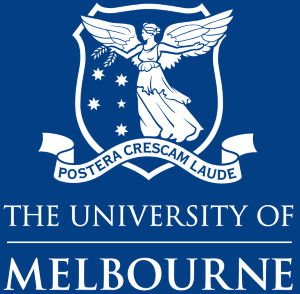
Graduate Diploma in Economics
The University of Melbourne, Australia
Diploma in Economics provides this. You should acquire and be able to apply the skills of a professional economist at an honours level. Those with good results will be eligible for graduate level study in economics and econometrics at the Masters and Graduate Research levels.
DURATION
1 YearFEES
INR 32.49L (Total)EXAMS
IELTS-6.5INTAKE SESSION
FEB 2025
More courses at The University of MelbourneView All
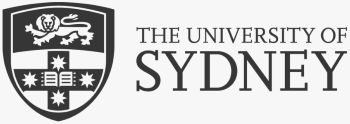
Master of Economics (Dual Degree, Fudan University, China)
The University of Sydney, Australia
The Master of Economics (Dual Degree, Fudan University, China) offered by University of Sydney is an advanced Masters course designed for students aspiring to become professionals in Economics. Students will gain hands-on experience through practical exercises and real-world projects, allowing them to apply the concepts learned in class. The curriculum is carefully designed to ensure that students develop a strong foundation in Economics and acquire the skills needed to solve complex problems in the industry. Upon completion of this course, students will be well-prepared to tackle the challenges of Economics and pursue rewarding career opportunities such as Economist, Financial Analyst, Policy Analyst, Data Analyst, Investment Analyst, Market Research Analyst.
DURATION
2 YearsFEES
INR 0.00L/yrEXAMS
-INTAKE SESSION
MAR 2025
More courses at The University of SydneyView All

Master of Philosophy in Commerce and Economics
The University of New South Wales, Australia
The Master of Philosophy (MPhil) is designed to provide an opportunity for students to develop research competence in a limited timeframe. The program duration is 1.5 years full-time or 3 years part-time.
DURATION
1 Year 8 MonthsFEES
INR 39.70L/yrEXAMS
IELTS-7.0INTAKE SESSION
FEB 2025
More courses at The University of New South WalesView All
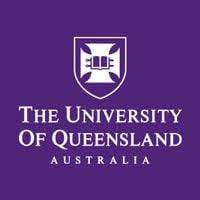
Graduate Certificate in Economics
The University of Queensland Australia, Australia
Invest in your career success with future-focussed study that provides you with the high-level analytical and decision-making skills sought after by employers in today's job market. Higher level study in economics at UQ will develop your analytical ability, critical thinking and logic all key decision-making skills that can contribute to greater career outcomes. This qualification provides economics training and allows you to build on the knowledge of economic concepts gained in your undergraduate degree, opening the possibility to undertake further study in an economics master's (24 unit) program. UQ's programs are influenced by the latest economic research and taught by world-class academic staff, so you can be sure of receiving the highest quality education. Your studies will include courses that deliver knowledge in consumer and firm behaviour, the macroeconomy and econometrics while electives cover areas such as environmental economics, health economics and economic development. Program highlights Discover new learning experiences in a modern economics program that's engaging, interactive and always rewarding. Take advantage of the many resources available through UQ and its School of Economics to guide you through your studies. Graduate with the abilities you need to succeed in a dynamic and increasingly competitive world. UQ's School of Economics is consistently ranked in the top 5 percent of research-intensive economic departments in the world. Source: Research Papers in Economics
DURATION
6 MonthsFEES
INR 14.41L/yrEXAMS
IELTS-6.5INTAKE SESSION
FEB 2025
More courses at The University of Queensland AustraliaView All
DURATION
1 YearFEES
INR 28.82L (Total)EXAMS
IELTS-6.5
DURATION
1 Year 6 MonthsFEES
INR 36.88L (Total)EXAMS
IELTS-6.5
DURATION
1 Year 6 MonthsFEES
INR 37.74L/yrEXAMS
IELTS-6.5
DURATION
2 YearsFEES
INR 49.17L/yrEXAMS
IELTS-6.5
DURATION
1 Year 6 MonthsFEES
INR 28.82L/yrEXAMS
IELTS-6.5

Master of Applied Economics and Econometrics
Monash University, Australia
DURATION
1 YearFEES
INR 26.53L/yrEXAMS
-INTAKE SESSION
FEB 2025
More courses at Monash UniversityView All

Master of Philosophy - Research (Economics and Commerce)
The University of Western Australia (UWA), Australia
The MPhil is a highly flexible course that mirrors the structure and breadth of the Doctor of Philosophy. The Master of Philosophy (MPhil) can be taken in any discipline for which appropriate supervision supervision and resourcing are available.
DURATION
2 YearsFEES
INR 25.99L/yrEXAMS
IELTS-6.5INTAKE SESSION
-
More courses at The University of Western Australia (UWA)View All
DURATION
2 YearsFEES
INR 25.99L/yrEXAMS
IELTS-6.5
DURATION
2 YearsFEES
INR 28.90L/yrEXAMS
IELTS-6.5
DURATION
2 YearsFEES
INR 29.98L/yrEXAMS
IELTS-6.5
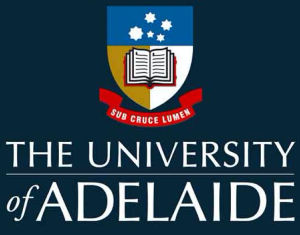
Master of Finance and Business Economics
The University of Adelaide, Australia
DURATION
2 YearsFEES
INR 54.58L/yrEXAMS
IELTS-6.5INTAKE SESSION
FEB 2025
More courses at The University of AdelaideView All

Master of Behavioural Economics
University of Technology Sydney (UTS), Australia
This course gives students thorough training in behavioural economics. It is tailored to professionals wanting to apply behavioural frameworks to decision-making contexts such as household financial decisions, the health industry, corporate decisions and environmental problems.
Its uniqueness lies in the practical application of conceptual frameworks to real-world scenarios across the domains outlined above. They acquire skills in behavioural analysis, causal inference, trial design and the ethical dimensions of behavioural interventions. The course culminates in a project either as independent research or as a consulting task for a real organisation. Engage in interactive learning through a blend of lectures, case studies and project work, preparing them for leadership roles in behavioural units and beyond.
DURATION
1 Year 6 MonthsFEES
INR 39.73L (Total)EXAMS
IELTS-6.5INTAKE SESSION
FEB 2025
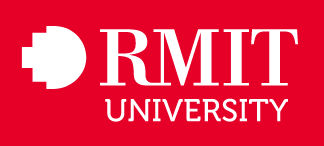
Master of Business (Economics, Finance and Marketing)
RMIT University, Australia
In this program you will develop advanced skills in order to critically analyse information, synthesise knowledge, and communicate your research findings effectively for a variety of career settings. This master degree may be undertaken in a project or thesis mode. Economics Finance Marketing
DURATION
2 YearsFEES
INR 21.34L/yrEXAMS
IELTS-6.5INTAKE SESSION
-
Recommended articles for you
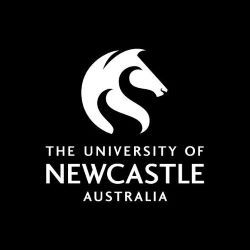
Master of Philosophy (Economics)
The University of Newcastle, Australia, Australia
The Newcastle Business School strives to find solutions so business and society can work together to create sustainable enterprises and communities in the areas of management, marketing, human resource management and accounting, finance, and economics. We also welcome a wide array of national and internationally renowned scholars to work with our world-class academics.
DURATION
2 YearsFEES
INR 18.62L/yrEXAMS
IELTS-6.5INTAKE SESSION
-
More courses at The University of Newcastle, AustraliaView All
DURATION
6 MonthsFEES
INR 12.47L/yrEXAMS
IELTS-6.5
DURATION
2 YearsFEES
INR 23.97L/yrEXAMS
IELTS-6.5
DURATION
1 Year 6 MonthsFEES
INR 24.35L/yrEXAMS
IELTS-6.5
DURATION
2 YearsFEES
INR 24.50L/yrEXAMS
IELTS-6.5

Graduate Certificate in Minerals and Energy Economics
Curtin University, Australia
This course will introduce you to economic, financial and management issues relevant to the mineral and energy sectors. You can tailor your studies to suit your professional needs and interests.
DURATION
6 MonthsFEES
INR 9.12L (Total)EXAMS
IELTS-6.5INTAKE SESSION
FEB 2025
More courses at Curtin UniversityView All
DURATION
1 Year 6 MonthsFEES
INR 18.70L/yrEXAMS
IELTS-6.5
DURATION
2 YearsFEES
INR 20.75L/yrEXAMS
IELTS-6.5
DURATION
2 Years 6 MonthsFEES
INR 21.92L/yrEXAMS
IELTS-6.5

Master of Applied Economics
Macquarie University, Australia
Economic decision making by governments, businesses and individuals can significantly impact our lives, behaviour and wellbeing. Applied economic analysis is an increasingly important field, requiring people who are skilled at analysing and interpreting economic data to inform decisions about everything from healthcare to financial policy, economic growth and development, natural resources and the environment, and the organisation and structure of markets.
DURATION
2 YearsFEES
INR 25.71L/yrEXAMS
IELTS-6.5INTAKE SESSION
FEB 2025

Master of Economics
University of Tasmania (UTAS), Australia
DURATION
2 YearsFEES
INR 38.37L/yrEXAMS
IELTS-6.0INTAKE SESSION
-
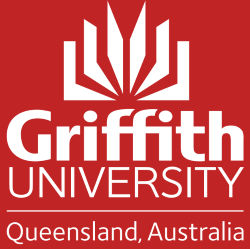
Master of Philosophy in Department of Accounting, Finance and Economics (MPHILAFE)
Griffith University, Australia
DURATION
2 YearsFEES
INR 38.98L/yrEXAMS
IELTS-6.5INTAKE SESSION
OCT 2024
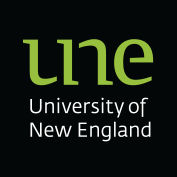
Master of Economics
University of New England, Australia
DURATION
1 YearFEES
INR 16.24L/yrEXAMS
-INTAKE SESSION
FEB 2025
More courses at University of New EnglandView All
TRENDING SEARCHES
- Study in Australia
- Universities in Australia
- Courses in Australia
- Masters in Australia
- Bachelors in Australia
- La Trobe University
- University of Adelaide
- Griffith University
- Melbourne Institute Of Technology
- Deakin University
- RMIT University
- Macquarie University
- The University of Melbourne Acceptance Rate
- UTS College Acceptance Rate
- Monash University
- Carnegie Mellon University
- University of Queensland
- Curtin University
- University of Sydney
- University of Melbourne
- University of Wollongong
- Flinders University
- Western Sydney University
- Public Health Courses in Australia
- Nursing Courses in Australia
- Medical Courses in Australia
- Project Management Courses in Australia
- Social Work Courses in Australia
- Cyber Security Courses in Australia
- Digital Marketing Courses in Australia
- Hotel Management Courses in Australia
- Diploma in Nursing in Australia
- Teaching Courses in Australia
- Accounting Courses in Australia
- Psychology Courses in Australia
- Bachelors in Mechanical Engineering in Australia
- Bachelors in Nursing in Australia
- Bachelors in Computer Science in Australia
- Bachelors in Information Technology in Australia
- Bachelors in Psychology in Australia
- Masters in Supply Chain Management in Australia
- Masters in Computer Science in Australia
- Masters in Pharmacy in Australia
- Masters in Nursing in Australia
- Masters in Engineering Management in Australia
- Masters in Social Work in Australia
- MS in Australia
- Masters in Business Analytics in Australia
- Masters in Data Science in Australia
- Masters in Education in Australia
- Masters in Management in Australia
- Masters in Project Management in Australia
- Masters in Psychology in Australia
- Masters in Construction Management in Australia
- Masters in Information Technology in Australia
- Masters in Public Health in Australia
- University of Sydney Courses
- Monash University Courses
- Flinders University Courses
- Curtin University Courses
- University of Queensland Courses
- Edith Cowan University Courses
- Western Sydney University Courses
- Griffith University Courses
- University of Melbourne Courses
- Duolingo English Test Accepted University
- Duolingo Accepted University In Australia
- GMAT Exam
- Gmat Exam Syllabus
- The Need To Belong IELTS Reading Answers
- Duolingo Test Fees
- Duolingo English Test
- ACT Exam
- A Spark A Flint IELTS Reading Answers
- Cleaner Abundant IELTS Reading Answers
- Duolingo Language Certificate
- Animal Camouflage IELTS Reading Answers
- SAT Exam
- Describe A Good Law In Your Country IELTS Cue Card
- Population Movements And Genetics IELTS Reading Answers
- Mba Without GMAT In UK
- Duolingo Accepted Universities In Canada For 2023
- List Of Universities That Waived Off Gre For Fall 2023
- Usmle Centers In India
- GRE Documents Required
- A Song In The Brain IELTS Reading Answers
- SAT Exam Syllabus For Indian Students
- PTE Exam
- OET Test
- Difference between Duolingo and IELTS
- Gmat Eligibility
- Gmat Fees
- GRE Exam
- GRE Exam Syllabus
- MBA in Australia Cost
- Best Universities in Australia
- Study in Ireland
- Study in Finland
- Why Study in Australia
- SOP for Australia
- Cost of Study in Australia
- Masters in Artificial Intelligence in Australia
- Masters in Cyber Security Australia
- Study in Australia
- Study in Germany
- How Much Gap Is Accepted for Study in Australia
- Study in Canada
- Top Cities of Australia
- How to Study in Australia from India
- Requirements for Studying in Australia
- Exams for MS in Australia
- Cost of Living in Australia
- Sample SOP for Australia
Disclaimer
All information provided on this page is for general use and upGrad Abroad is not responsible for any errors or omissions. The Universities involved in this Program are accredited/recognized in the countries where they are established. Relevant terms and conditions apply.Any action taken upon the information found on this website is strictly at your own risk.

